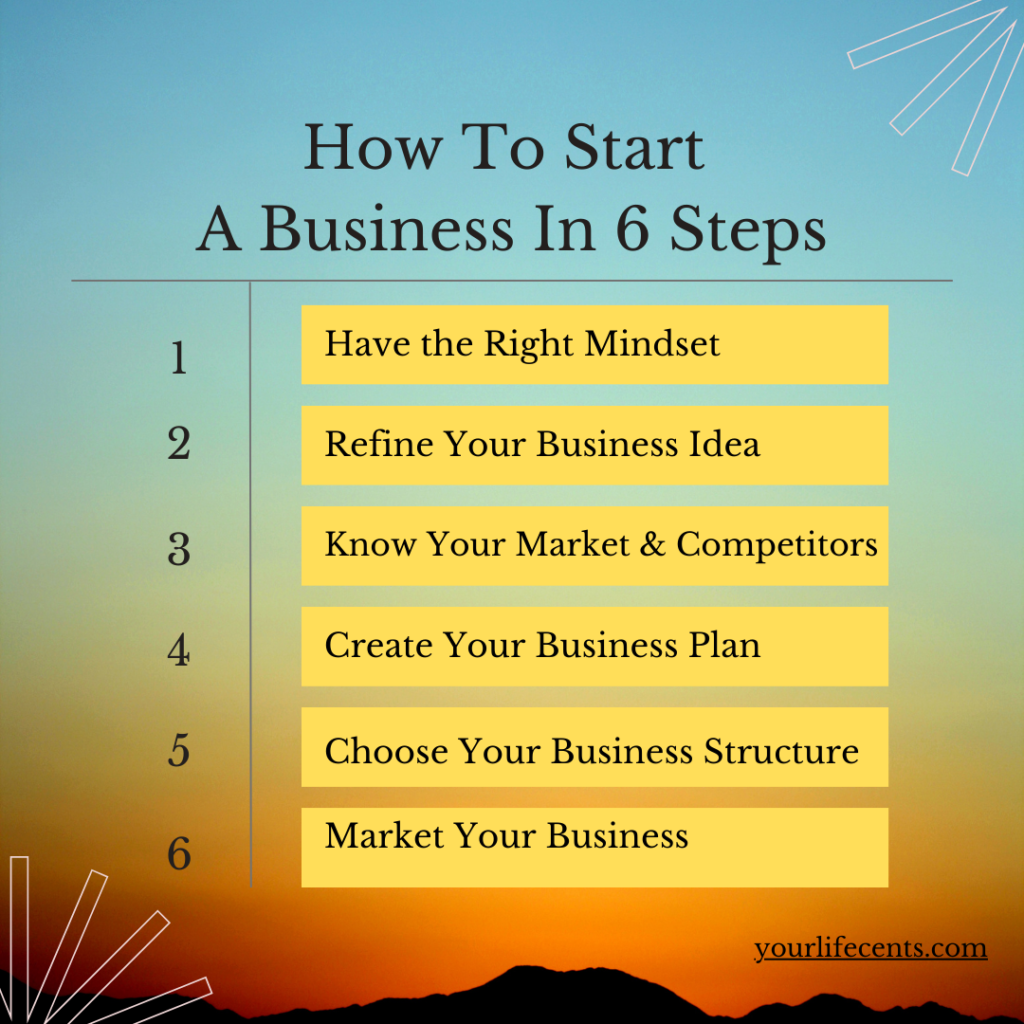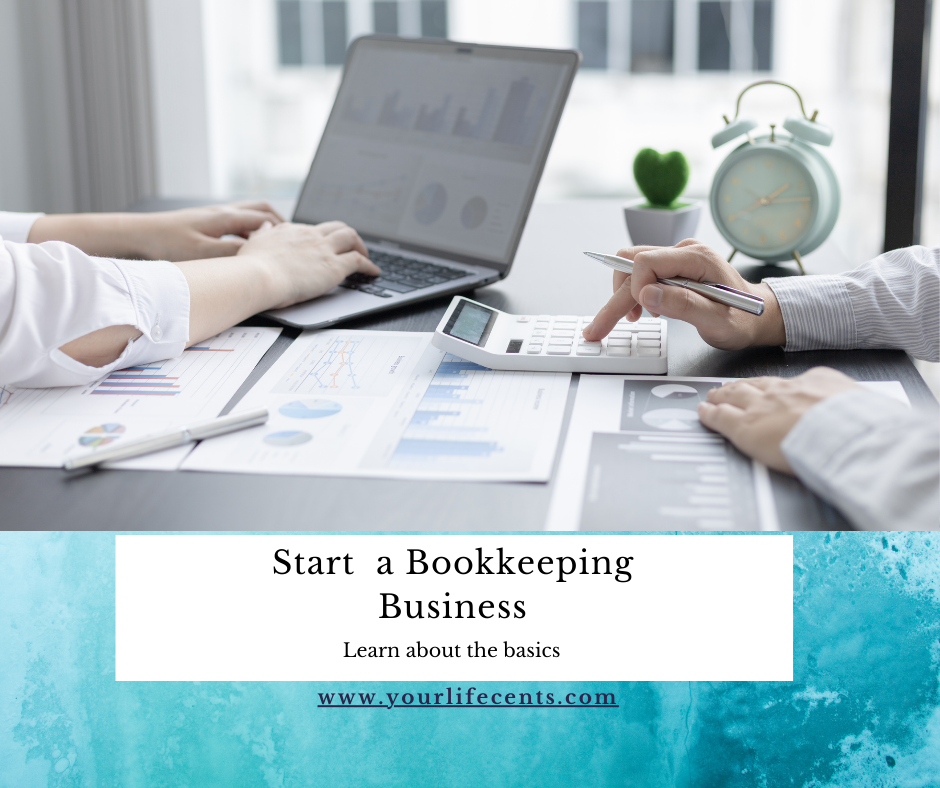
Get Paid to Write Stories: 23 Best Places That Will Publish Your Short Stories
June 12, 2022
Get Paid to Write Stories: 23 Best Places That Will Publish Your Short Stories
June 12, 2022Are you considering starting a bookkeeping business this year and want to know if it’s a viable option to make money working from home? Then this article is for you.
No matter how the job landscape changes, one thing is sure; bookkeeping will always be an in-demand job. As more people start online businesses, dealing with finances is a headache many entrepreneurs don’t want to deal with.
And this is great for you because you’ll always be able to find clients while you work from the comforts of your home. No more long commutes and no more long days at the office.
In this post, you’ll learn:
- What a bookkeeper does
- Why you should start a virtual bookkeeping business
- How to start a home-based bookkeeping business
What Do Bookkeepers Do?
Bookkeepers have the essential job of managing and organizing personal and business finances for businesses and individuals. Small online businesses often manage multiple bank accounts and need to track expenses and income for taxes.
A bookkeeper plays a vital role in helping small business owners handle their cash flow. And some businesses need important financial statements and documents like balance sheets and profit and loss statements.
However, bookkeepers are not to be confused with accountants. A certified accountant can perform audits and file tax returns, whereas a bookkeeper cannot, which also means that you can start a bookkeeping business without having an accounting degree.
There are several certifications bookkeepers can get, but you can also learn through on-the-job experience to launch your business. But many businesses will not hire you without experience or certifications because people must trust you to manage their money.
How do I start my own bookkeeper business?

Here’s What You Need to Get Started
There are several things you’ll need to start a bookkeeping business.
- Reliable internet connection
- A business website, email address, and hosting
- Accounting software
- Laptop
- Printers/Scanner
- Errors and Omissions Insurance
- Certification or training
- Business license and registration (depending on where you live)
- No matter what business structure (sole proprietorship, LLC, etc.) you use, you’ll still want a separate business bank account.
We’ll go into more detail with many of these later on.
Benefits to Start a Virtual Bookkeeping Business
There are many advantages to starting a virtual bookkeeping business.
Freedom and Flexibility
Starting a bookkeeping business from your home gives you the freedom and flexibility that traditional jobs can’t provide. You can work with who you want to when you want to.
Set your own schedule and even work only three or four days a week. If one of your kids is home sick, you don’t have to go to an office or call in sick; you can stay home with them.
While you can work whenever you want to, you may want to have some daytime hours so clients can reach you during normal business hours.
When you start a bookkeeping business from home, you don’t have to miss out on your kids’ activities and programs. You won’t miss all the special moments in life.
Bookkeeping is In Demand
Bookkeeping is a well-respected career that has stood the test of time. Accounting goes back thousands of years, with some of the earliest evidence dating back 7,000 years ago to Mesopotamian civilizations.
Almost every small business needs a bookkeeper.
People will always need bookkeepers. Yes, accounting software is great, but you need a human to operate it and do tasks that only they can do.
Is a bookkeeping business Profitable?
Amazing Income Potential
Bookkeeping businesses have incredible income potential, and it’s scaleable. You can grow your business to a small bookkeeping agency where you manage other bookkeepers who do the work, freeing up more time for you and your family.
If you continuously raise your rates the way you should, you can make more money working less.
Work with Who You Want
This benefit is great because you don’t have to take just any client. You get to choose who you work with, unlike in your traditional job, where you had to work with your boss and coworkers.
If you think a client is going to be high maintenance, just tell them you aren’t the bookkeeper for them. Life is too short to be miserable at work, whether at home or in the office.

A Step-By-Step Guide to Starting a Bookkeeping Business
Your checklist for starting a bookkeeping business….
1. Become Certified
The easiest way to gain credibility and position yourself as an expert is to become a certified bookkeeper, especially if you don’t have experience or formal accounting education.
But unlike Certified Public Accountants (CPAs), bookkeeping certifications are not regulated by each state.
Not all certifications are the same. You want to choose a reputable organization, so your certification is well-respected.
Two reputable, professional bookkeeper organizations that can certify you are:
National Association of Certified Public Bookkeepers (NACPB)
To become certified through this organization, you need to take several courses:
- Quickbooks Online
- Bookkeeping
- Payroll
- Accounting Principles
You must pass an exam in each of these areas, and you’ll need one year of experience to apply for your license.
If you have some accounting courses under your belt, you may be able to substitute them for these courses, but you will still need to pass the exams. Once you earn your credentials, you will be a Certified Professional Bookkeeper (CPB).
American Institute of Professional Bookkeepers (AIPB)
To get certified as a bookkeeper through AIPB, you must meet the organization’s requirement of 3,000 hours of work experience and pass their certification exam. Once you earn your credentials, you will be a Certified Bookkeeper (CB).
An AIPB certification is one of the best ones to get if you have no formal education in accounting or bookkeeping.
Accounting Software Certification
Getting certified on account software is another way to gain a competitive edge over your competition. Luckily, some of the best accounting software providers have certifications that allow you to demonstrate your proficiency with them.
Many of these certifications are free, and some even come with free accounting software for your business and/or clients.
FreshBooks Partner Program – FreshBooks is a great simple software option for many small businesses, especially service-based ones. The invoicing features stand out here. Their partnership program includes FreshBooks skills training and certification.
QuickBooks ProAdvisor – QuickBooks dominates as one of the most popular accounting and bookkeeping software for small businesses in America. You can get ProAdvisor certifications for QuickBooks Desktop and QuickBooks Online. They are self-paced, and you must pass the exams.
The QuickBooks Online certification is free, but the Desktop one requires you to purchase QuickBooks Desktop software for around $449 a year.
Xero Partner Program – Xero is an accounting software comparable to FreshBooks that costs less than QuickBooks. It has a partnership program that includes certification on the software.
2. Choose a Niche and Market
Businesses in every industry or niche can use a bookkeeper, and you may think that marketing to everyone is the best way to get more clients. It’s not.
It’s hard to stand out in a crowd but choosing a niche helps you narrow down your focus and position yourself as an expert. Picking a segment of the market to focus on also helps you build credibility.
Consider who you want your ideal client to be. Is there any industry you’re more connected with, like food and wine, tech, or SaaS?
3. Create Your Business Plan
Since you are handling people‘s finances, legitimizing your business shows people you’re a professional and builds trust. Creating a business plan not only helps you start a bookkeeping business but also helps to keep you on track.
A business plan details everything from your marketing plan to operations to the services you offer. It helps you focus on the details of how you will grow your business over time and the important elements to focus on.
Part of this process is naming your business and setting up a professional email based on your website domain. When naming your business, you want to choose a professional name that tells people exactly what you do.
Now don’t worry; just because you are adding your business name to your business plan doesn’t mean you can’t change it if you need to. So, don’t stress about that too much.
4. Get Legit
Part of legitimizing your bookkeeping business is registering it and getting a business license if your state or locality requires it. Some of this process depends on the business structure you choose, like an LLC (limited liability company) or sole proprietorship. Check out this link to the IRS for small business- self employed.
5. Buy Insurance
Some service providers may be able to get away with not insuring their business, but bookkeeping isn’t one. You could make a mistake with a client’s books which could lead to you getting sued and damaging your reputation.
So, I recommend you at least get general liability protection or professional liability insurance when you start a bookkeeping business.
6. Pick Your Accounting Software
One of the initial startup costs you’ll have to pay is the accounting software you plan to use. There are several options for financial management software like:
Both QuickBooks and FreshBooks are easy for any business owner and are some of the best bookkeeping software options for your bookkeeping business. QuickBooks Online is one of the few software options that allow business owners to add their bookkeeper or accountant to their accounts as a user.
But choose the bookkeeping software you are most comfortable with, as well; this is an important part of figuring out how to start a home-based bookkeeping business. If you plan on getting certified on the software you use, this will be a major deciding factor.
7. Decide on Your Bookkeeping Services and Pricing
Another important aspect of setting up your business is deciding on the bookkeeping services you want to offer and pricing them. Today, packaging your services and offering a few options is usually the best approach.
Typical bookkeeping services include:
- Managing a business’s finances through business accounting software.
- Managing accounts payable and receivable.
- Helping businesses with an overview of their finances to help them understand their habits.
- Generating financial statements.
You could create a base package that offers the basics and then two other tiers with more services like a basic, pro, and premiere or bronze, silver, and gold.
Now pricing can get tricky as it depends on your experience, certifications, the services you offer, and the clients you choose.
You’ll be able to charge a large company more than a small business for bookkeeping services, as it takes longer to manage their finances. And deciding how to price services for new potential clients can be difficult because you don’t know how long it will take to balance their books each month.
On the low end, a beginner may charge around $25 per hour, while a more experienced bookkeeper can charge hundreds of dollars per hour.
Just don’t forget to include your business expenses in your pricing, like the cost of the software you use, your time, or any other tools, products, or services you use.
Many business owners forget to add their different expenses into their pricing, and this could be detrimental to your business. Not pricing your services correctly can lead to a lot of lost income.
Plus, you’ll need to work harder for less money which can lead to burnout.
8. Set Up Your Business
The next important aspect to address is setting up your business, meaning building your website, setting up your business bank account, and creating your sales process.
You’ll also want to set up your home office with everything you need, like a printer, computer, desk, office supplies, and anything else you need.
Setting up the tech in your business is another important part of the process. Consider how you will do discovery calls. Will you use Zoom or something else?
Will you offer a chat option? How about a scheduling app?
I also suggest you use a project management system like Trello, Click Up, Evernote, or Asana to manage everything. A project management app will keep you organized and help you outsource later down the road.
8. Create Your Sales Process
When you start a bookkeeping business, you need to establish a sales process and document it to make things easier down the road if you decide to outsource things.
This usually starts with your marketing, then the discovery call, and after that, onboarding your new client.
9. Market Your Services
Luckily, today there are many ways to market your services and get clients. The important part is knowing who your ideal client is and understanding their problems. Once you do this, you can tailor your marketing messages to that person and get clients easier.
You’ll also want to see what sets you apart from other bookkeepers offering the same service. This is called your unique selling proposition, and it can be based on your industry, your approach to managing finances, your experience, etc.
As far as finding clients, you can do this in a variety of ways.
Social media – You can market your services on social media. LinkedIn is one of the best places for service-based businesses to find clients. It was named the most trusted social media platform for professionals, and it’s not just for corporate companies.
Networking Online and In-Person – Networking is one of the best places to find clients. Attend conferences and trade shows and show up where they hang out online, like LinkedIn or Facebook groups.
Podcasts – You can get clients by being interviewed on the podcasts they listen to.
Guest Posting – Write guest posts on websites or for the publications your ideal client reads.
Professional email signature – Using a professional email signature for all your communication is a great subtle way to market your bookkeeping business.
Discovery Calls
After you find prospective potential clients, you’ll want to funnel them back to your main base, your website, so they can sign up for a discovery call.
The purpose of a discovery call is to learn a little more about each other, and you can present them with the package options. They’ll want to understand more about how you can help them and your processes.
10. Choose and Onboard Customers
Once you and a possible client decide you want to work together, you’ll need an onboarding process. This process includes getting the information you need to do your job, setting them up in your accounting software, and providing them with everything they need.
You’ll also want to use a contract to formalize any agreements and put them in writing. My friend and business attorney Amira Irfan has a Bookkeeping Legal Agreement Template that costs much less than hiring a lawyer to draft one for you.
The nice thing about running a bookkeeping business today is technology allows you to automate many pieces of this process. You can automate reminder emails for calls with clients, parts of your marketing, invoice reminders, paying bills, and more.
The apps, tools, and services you use will be part of your startup costs and ongoing expenses.
FAQs
Can I start a bookkeeping business with no experience?
Even if you are starting a bookkeeping business with no experience managing people’s finances, you can still start a bookkeeping business. But it is easier to find clients if you get certified as a bookkeeper or have experience.
Is it worth starting a bookkeeping business?
It is worth it to create a bookkeeping business because it has amazing income potential, and the startup costs are minimal compared to other businesses. You can set your own schedule and choose the clients you work with. Plus, every small business could use a bookkeeper.
Is becoming a certified bookkeeper worth it?
It’s a good idea to become certified if you have little to no experience. Being certified builds trust with potential clients, allows you to charge more for your services, and makes marketing easier. Getting certified is also a way to set yourself apart from your competitors.
Which bookkeeper certification is best?
There are a variety of bookkeeping and accounting certifications to choose from. Two of the best are the American Institute of Professional Bookkeepers and the National Association of Certified Public Bookkeepers.
If you are interested in accounting certifications, consider the International Accredited Business Accountant (IABA) or The American Institute of Certified Public Accountants (AICPA).
Final Thoughts on How to Start a Home-Based Bookkeeping Business
Now you know exactly how to start a bookkeeping business managing other people’s finances. Bookkeeping is in demand as every business owner needs help managing their income and expenses.
Follow these steps to set up your bookkeeping business and manage your clients, and you’ll be successful with a lucrative career you’ll love.
As your business grows, you can outsource some of your tasks to scale it over time and increase your income.
Looking for other home work from home ideas? Check out these other posts!
